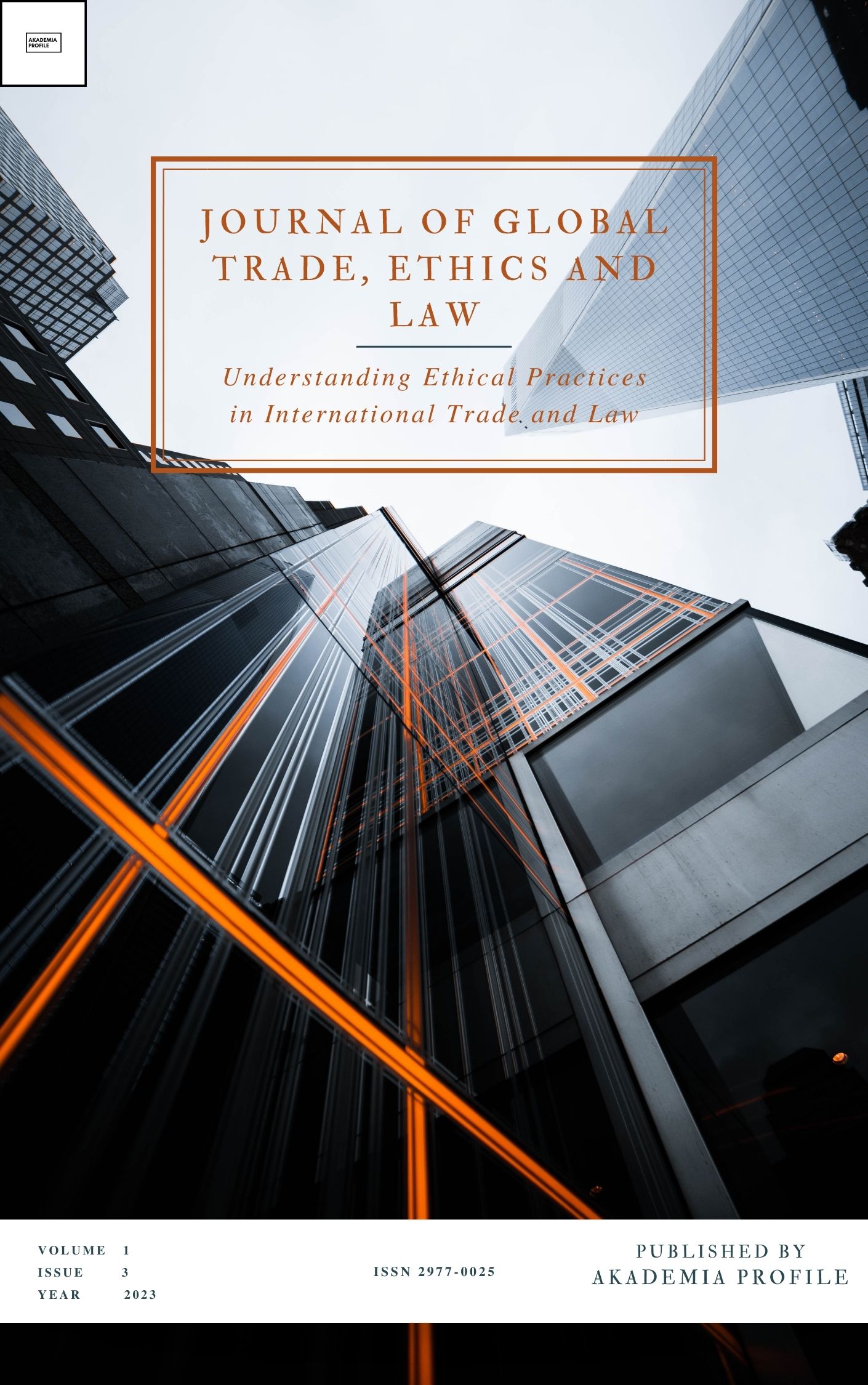Forging a Moral Basis for Emerging Economies

Published 2023-11-07
Keywords
- Homo Economicus,
- Ethics,
- Political Economy,
- Smith Problem
Copyright (c) 2023 Journal of Global Trade, Ethics and Law

This work is licensed under a Creative Commons Attribution 4.0 International License.
How to Cite
Abstract
Aristotle said that politics is the master science. What he calls politics is not what is now called political science but the culmination of ethics. Per Aristotle, economics, a dimension of ethics, posits the eudaimonia (human flourishing or well-being, erroneously translated as happiness) or summum bonum for human society and describes the regional structures of human social existence. Economics cannot, therefore, be a positive science but must be a normative science.
Morality has disappeared from economics being taught at American universities. The prevailing paradigm adopted by mainstream economics is Homo economicus, which is the "wrong reduction of a man." Such a gross reduction of a human into a rational agent who maximizes his utility subject to the given budget constraint leaves dormant higher human values (compassion, empathy, brotherhood, and sisterhood, to name a few), and this mechanical decision-maker is likely to destroy himself and the society in which he operates.
Economics (taught and practiced in America) is the fish that has jumped out of its pond and is now dying of thirst. Ethics is the water that gives it life. The best way to save it is to bring economics back to the pond where it belongs. What is truly needed is a paradigm shift in the teaching and practice of economics.
Last but not least, economists in emerging countries should forge a moral basis for their national economy and form a vision of how to construct a system of political economy that will achieve the maximum well-being of the citizens and social justice. In doing so, they should synthesize their normative value judgments with scientific perspectives in economics. Old, labeled models like capitalism and socialism are modifiable constructs.
Downloads
References
- Emmer, Michele. 2016. Mathematics and Culture v. Springer.
- Etzioni, Amitai. 1988. The Moral Dimension: Toward a New Economics. The Free Press.
- Goody, Jack. 2007. The Theft of History. https://doi.org/10.1017/cbo9780511819841.
- Keynes, John Maynard. 1933. Essays in Biography. MacMillan.
- McGee, Robert W. 2023. “Ethics in International Trade”. Journal of Global Trade, Ethics and Law 1 (2):66-98. https://doi.org/10.5281/zenodo.8086948.
- Marshall, Alfred. 2002. Principles of Economics (Abridged Edition). Cosimo Classics.
- McCloskey, Deirdre N. 2002. The Secret Sins of Economics. Prickly Paradigm Press.
- Ormerod, Paul. 1994. The Death of Economics. St. Martin’s Press.
- Reich, Robert B. 2015. Saving Capitalism: For the Many, Not the Few. Vintage Books.
- ____________. 2018. The Common Good. Alfred A. Knopf.
- ____________. 2020. The System: Who Rigged It, How We Fix It. Alfred A. Knopf.
- Sedlacek, Tomas. 2011. Economics of Good and Evil: The Quest for Economic Meaning from Gilgamesh to Wall Street. Oxford University Press.
- Selznick, Philip. 1994. The Moral Commonwealth: Social Theory and the Promise of Community. Univ of California Press.
- Smith, Adam. 1937.An Inquiry into the Nature and Causes of The Wealth of Nations. The Modern Library.
- __________. 2002. The Theory of Moral Sentiments. Cambridge University Press.
- Spiegel, Henry W. 1956. “G. L. S. SHACKLE. Uncertainty in Economics and Other Reflections. Pp. Xiv, 267. New York: Cambridge University Press, 1955.” Annals of the American Academy of
- Political and Social Science 304 (1): 159–60. https://doi.org/10.1177/000271625630400135.
- Yoon, Yeomin. 2014. “Lion’s Roar of Four No’s Deserves Praise.” Financial Times. January 6, 2014. https://www.ft.com/content/d95d09fc-6f05-11e3-9ac9-00144feabdc0.
